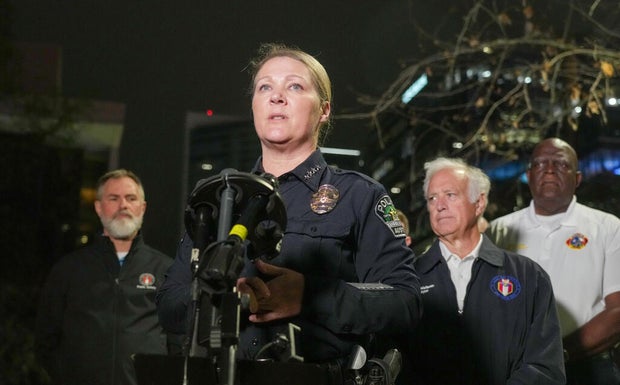French far-right leader Marine Le Pen goes on trial on Monday for allegedly embezzling EU funds, in a politically charged case that could lead to fines and a ban from elected office.
Prosecutors accuse the three-time presidential candidate and former member of the European parliament of misusing EU funds to pay staff hired in Brussels for work they were doing for the party in France.
Also on trial are 24 others, including elected officials and staffers, as well as Le Pen’s far-right party itself.
They allegedly siphoned off roughly €3.2mn from 2004 to 2016 at a time when their party, then called Front National, was cash-strapped, according to Patrick Maisonneuve, the lawyer for the EU parliament at the trial.
If proven true, such practices would fall foul of rules that govern how MEPs can spend money allocated to them to cover their expenses.
Le Pen and the other defendants have said they committed no wrongdoing. The founder of the party, Jean-Marie Le Pen, who is Marine Le Pen’s father and a former member of the EU assembly for 25 years, was also supposed to stand trial, but judges decided the 96-year-old was too frail.
If convicted, judges could impose a prison sentence on Marine Le Pen of up to 10 years, €1mn in fines and a maximum ban on holding elected office of five years.
Such a verdict would cause political shockwaves in France, as her party, now rebranded as Rassemblement National, has emerged as a powerful force in the fractured French parliament following snap elections this summer.
The vote was called by President Emmanuel Macron after RN scooped up the largest share of the vote in elections for the EU parliament in June. Le Pen is expected to run for president again in 2027 when Macron’s second and final term ends.
With opposition parties threatening no-confidence votes against the fragile new government led by Prime Minister Michel Barnier, RN has emerged as a kingmaker since its votes would be needed for such a motion to pass.
Police and prosecutors in France began investigating the alleged fraud in 2014 after the EU parliament submitted evidence that Le Pen’s party was misusing funds.
To secure a conviction, prosecutors will have to prove that Le Pen and other defendants intentionally redirected their staff in Brussels to pursue tasks that were not related to their EU parliamentary work.
Maisonneuve, the lawyer for the EU parliament, said officials in Brussels initially noticed that “a large majority of the assistants” on RN’s organisational chart appeared to be based in France and not doing work in the EU assembly.
“We had an obligation to notify the French authorities to ensure that EU taxpayers’ money was not being misused,” he said.
Le Pen has called the charges “deeply unfair” and vowed that the trial would not disrupt RN’s work. Asked by La Tribune newspaper in early September if she feared a verdict that would bar her from elected office, she said she believed that she and her co-defendants would be cleared. “I am very sure of our innocence,” she said.
Several French political parties have been accused of similar crimes involving EU parliamentary assistants.
One of Macron’s allies, the centrist politician François Bayrou, was cleared earlier this year but his MoDem party was declared guilty of misappropriating EU funds. In 2018, an investigation was opened into the far-left party France Unbowed, but no charges have been filed.
“It can be difficult to draw a line between work done for the MEP and work done for the party,” said Francis Teitgen, the lawyer who represented the MoDem party in a similar trial.
“Compared to the case involving the Modem, which is very pro-Europe, the atmosphere of the RN one will be different since they are Eurosceptics.”










































